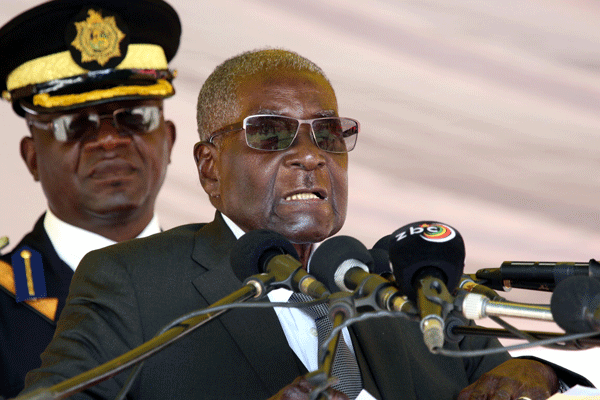
A respected economist and advisor in the Office of the President and Cabinet has recommended that the government must reduce the size of the army and police by half to stimulate the economy.
BY VENERANDA LANGA

Presenting a paper during a Sapes Trust discussion in Harare on Thursday, Ashok Chakravarti said populist policies contributed to Zimbabwe’s economic demise.
He said the solution to Zimbabwe’s liquidity crisis was to cut government expenditure and the size of the civil service which is gobbling 43% in recurrent expenditure as allowances.
“It does not matter which political party is in government but the facts that I am presenting will have to be dealt with by whichever political party is in power,” he said.
“It will be more difficult if you have a government that is populist because one of our biggest problems is in the size of the civil service.
“The fundamental problem we are facing at the moment behind all crises is government expenditure; and the size of government in Zimbabwe has become too big, it is 30% of gross domestic product, with parastatals being half the government and it has not happened in other African countries whose government sector is only 20% of GDP.”
He said Zimbabwe had a very large civil service and whoever gets into power had to face the size of the police and the army which was too large.
- Chamisa under fire over US$120K donation
- Mavhunga puts DeMbare into Chibuku quarterfinals
- Pension funds bet on Cabora Bassa oilfields
- Councils defy govt fire tender directive
Keep Reading
“The solution is we have to cut government size and there is no way out,” he said.
“ International Monetary Fund statistics say 43% of recurrent expenditure is allowances and that is the immediate target which must be looked at.
“Finance Chinamasa Patrick Chinamasa tried it last year by saying that there will be no bonuses but he was shot down by his populist colleagues.
“It is not a question of which political party- it needs national dialogue around it.”
Chakravarti said dollarisation was a big mistake made by government in 2009, adding the ideal was for a country to have its own currency.
“However, the Zimbabwe dollar lost credibility because of excessive printing and high inflation,” he said.
“The alternative is that as a country you should have adopted the currency of a country you trade most with, and so, in 2009 the South African Rand should have been adopted.
“The dollar is internationally tradeable and everyone wants it and it can be externalised.
“The bond note is a surrogate currency, and that is another problem. We need a non-external currency and that is the Rand.
“The Rand has no value in Dubai or Nairobi. We do not need to be under the South African Reserve Bank to adopt the Rand and in 2009, 80% of the currency in circulation was the Rand.”
IMF country representative Christian Beddies said economies in sub-Saharan Africa will remain informal for many years, adding informal business had provided safety nets for Zimbabweans.
Beddies said government must increase efforts to incentivise the sector so that they join the formal sector.
“Policies such as Statutory Instrument 64 (2016) have not been efficient because imports in 2017 are higher than the first quarter of 2016,” he said.
Founding director of the Labour and Economic Development Research Institute of Zimbabwe Godfrey Kanyenze blasted corruption in government departments and state enterprises and parastatals saying it has brought them to their knees.
“During the 1980s everyone wanted to work for parastatals, but now if you look at parastatal bosses they look like Hollywood stars,” he said.
“Look at what is happening at Chishawasha Hills in Harare, you find young people in their 40s building 80 roomed houses and no one has investigated where they got the money from.’
Parliamentary Portfolio Committee on Finance David Chapfika chairperson (Zanu PF) said the issue of corruption and opulence by some Zimbabweans when the majority of people were suffering made lifestyle audits neccesary.
“As a committee, we once asked Finance minister Patrick Chinamasa to come to Parliament to discuss about the issue of lifestyle audits, he said it was a hot potato,” he said.
Chapfika said the main problem in Zimbabwe was failure to implement economic blueprints.
“In Zimbabwe we are not starved of good economic policies,” he said.
“The President’s Office has piles of blueprints which other countries are borrowing and implementing.
“Our major challenge is implementation yet we have the highest literacy rates that are even better than those of the United States of America.”











